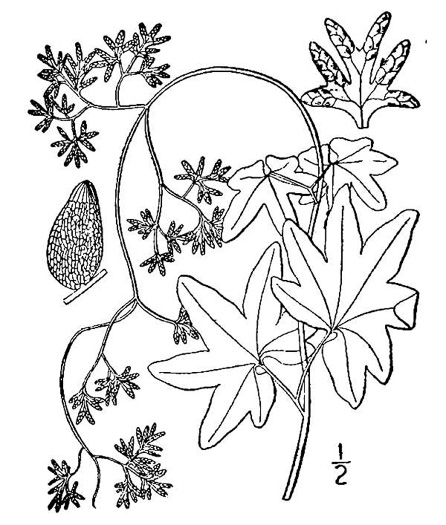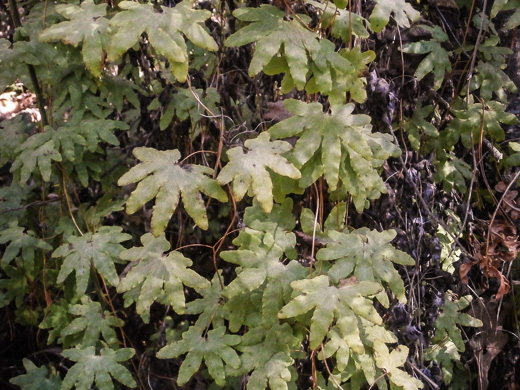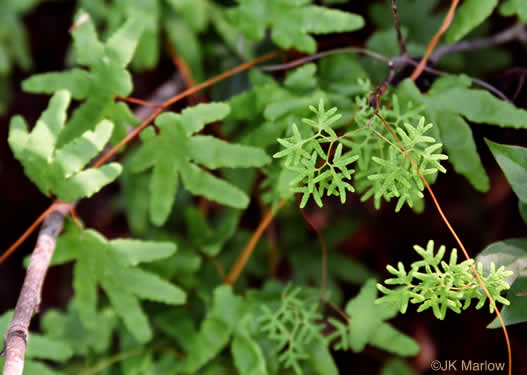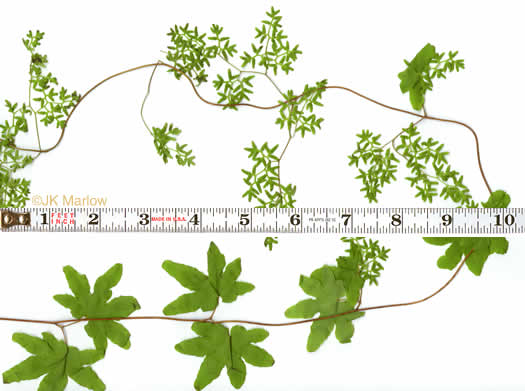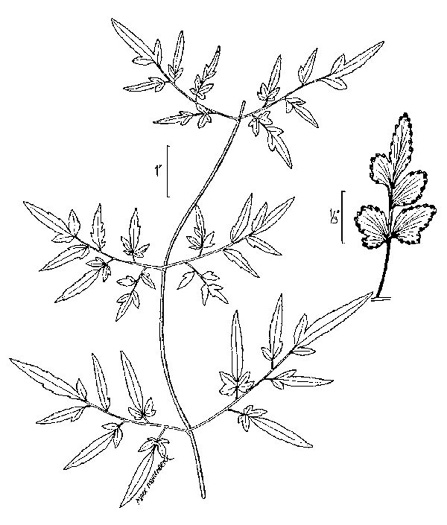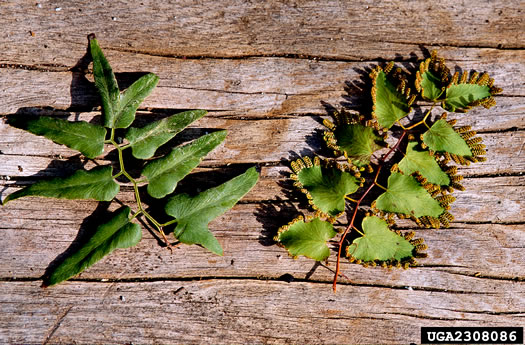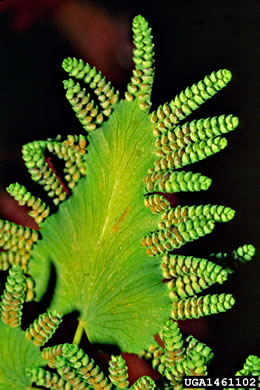Hovering over an image will enlarge it and point out features (works better on desktop than on mobile).
![]() A camera indicates there are pictures.
A camera indicates there are pictures.
![]() A speaker indicates that a botanical name is pronounced.
A speaker indicates that a botanical name is pronounced.
![]() A plus sign after a Latin name indicates that the species is further divided into varieties or subspecies.
A plus sign after a Latin name indicates that the species is further divided into varieties or subspecies.
Most habitat and range descriptions were obtained from Weakley's Flora.
Your search found 3 taxa in the family Lygodiaceae, Climbing Fern family, as understood by PLANTS National Database.

![]()
![]() Common Name:
American Climbing Fern
Common Name:
American Climbing Fern
Weakley's Flora: (4/24/22) Lygodium palmatum FAMILY: Lygodiaceae
SYNONYMOUS WITH PLANTS National Database: Lygodium palmatum FAMILY: Lygodiaceae
SYNONYMOUS WITH Vascular Flora of the Carolinas (Radford, Ahles, & Bell, 1968): Lygodium palmatum 008-01-001 FAMILY: Schizaeaceae
Habitat: Bogs, moist thickets, swamp forests, sandstone outcrops, roadside ditches and roadbanks, in strongly acid soils
Rare
Native to the Carolinas & Georgia

![]()
![]() Common Name:
Japanese Climbing Fern
Common Name:
Japanese Climbing Fern
Weakley's Flora: (4/24/22) Lygodium japonicum FAMILY: Lygodiaceae
SYNONYMOUS WITH PLANTS National Database: Lygodium japonicum FAMILY: Lygodiaceae
SYNONYMOUS WITH Vascular Flora of the Carolinas (Radford, Ahles, & Bell, 1968): Lygodium japonicum 008-01-002 FAMILY: Schizaeaceae
Habitat: Disturbed areas
Common in Coastal Plain of GA & SC, uncommon in Piedmont of GA & SC (rare elsewhere in GA-NC-SC)
Non-native: east Asia

![]() Common Name:
Old World Climbing Fern, Small-leaf Climbing Fern
Common Name:
Old World Climbing Fern, Small-leaf Climbing Fern
Weakley's Flora: (4/24/22) Lygodium microphyllum FAMILY: Lygodiaceae
SYNONYMOUS WITH PLANTS National Database: Lygodium microphyllum FAMILY: Lygodiaceae
Habitat: Swamps, hammocks, disturbed areas
Non-native: southeast Asia
Your search found 3 taxa. You are on page PAGE 1 out of 1 pages.

